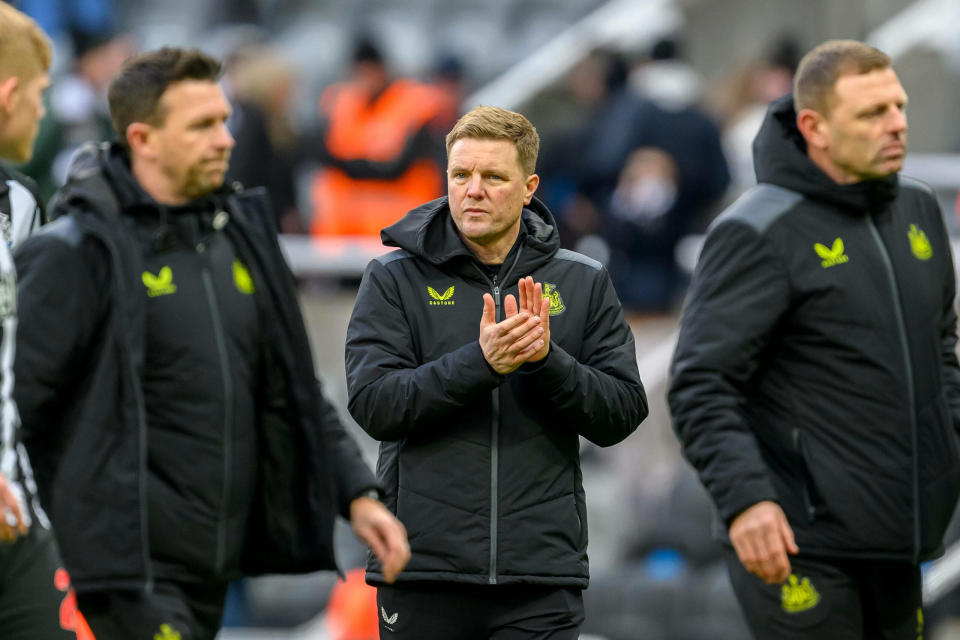Report: Major Changes at Newcastle – What’s Next?

Newcastle United: A New Chapter Begins as Staveley and Ghodoussi Depart
As the sun sets on the tenure of Amanda Staveley and Mehrdad Ghodoussi at St James’ Park, Newcastle United stands at a crossroads. The duo, who have been the public faces of the club since their consortium took over from Mike Ashley, are set to depart after almost three years of transformative leadership.

Ownership and Leadership Transitions at Newcastle
Staveley’s journey with Newcastle began with persistent efforts to acquire the club during the 2017-18 season. Her tenacity paid off when, as part of a wider consortium, she facilitated a £305 million takeover from Ashley in October 2021. Despite Saudi Arabia’s Public Investment Fund (PIF) holding an 80% majority stake, it was Staveley and the British billionaires, the Reuben Brothers, who added a local touch to the ownership.

Now, as Staveley’s stake has dwindled to around 6%, and with her recent resignation from directorial positions within the club’s non-trading subsidiaries, a shift in ownership dynamics is imminent. PIF and the Reubens are poised to acquire the remaining shares, potentially altering the club’s strategic direction.
Filling the Void: New Roles and Responsibilities
The departure of Staveley and Ghodoussi leaves significant shoes to fill. Their near-CEO roles have seen them directly involved in everything from audit to transfer negotiations—a gap that new appointees must bridge quickly. The arrival of Dan Ashworth and Darren Eales brought a semblance of stability, but with Staveley and Ghodoussi’s exit, the managerial structure will need further solidification.
This week’s announcement that Paul Mitchell will take over as sporting director underscores the importance of these transitions. With Mitchell and Eales at the helm, Newcastle is equipped to face the operational challenges ahead without the immediate oversight that Staveley provided.
Eddie Howe’s Future Amidst Change
For head coach Eddie Howe, the departure of two significant advocates does not immediately alter his daily responsibilities. Howe remains focused on preseason preparations, with Newcastle set to travel to Germany and Japan. However, the strategic undercurrents are shifting. Speculation about Howe’s future, particularly with the looming possibility of him replacing Gareth Southgate as England’s manager post-Euro 2024, adds a layer of complexity to his tenure at Newcastle.

During an interview with The Athletic in February 2022, Staveley expressed confidence in Howe’s long-term future at Newcastle, while Ghodoussi envisioned him as a figure akin to Alex Ferguson. Their departure could see Howe facing increased scrutiny, particularly if the upcoming season fails to meet heightened expectations.
Strategic Implications for Newcastle Women
Staveley’s passion for the women’s team has seen significant advancements, with the team turning professional and achieving consecutive promotions. Her departure raises questions about the future direction of Newcastle Women, now on the brink of reaching the Women’s Super League (WSL). The recent signing of England international Demi Stokes indicates a continued commitment to the women’s side, but Mitchell’s overarching role in football operations will need to address how the women’s team fits into the broader club strategy.
Governance and Future Directions
The broader implications of these changes extend to the club’s governance. With Staveley stepping down and Ghodoussi never having held an official directorial role, the composition of the board, especially with PIF’s involvement, is crucial. The club’s ability to navigate the Owners’ and Directors’ Test (OADT), especially under newer human rights considerations, will be telling of future governance structures.
As Newcastle moves forward, the realignment of roles and responsibilities at St James’ Park suggests a deeper integration with PIF’s vision. This could mean more direct involvement from Saudi officials and a potential shift in how the club is perceived both locally and globally.
In conclusion, as Newcastle United navigates these pivotal changes, the club’s trajectory remains promising yet uncertain. With a blend of local passion and international investment, the challenge will be to balance ambition with the values that have historically underpinned the club’s identity. As always, the Newcastle faithful will be watching closely, hopeful that this new chapter retains the spirit of the old while striving for new heights.

 Yahoo Sports
Yahoo Sports 
